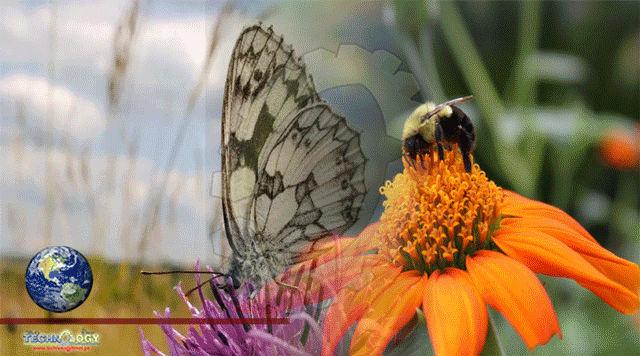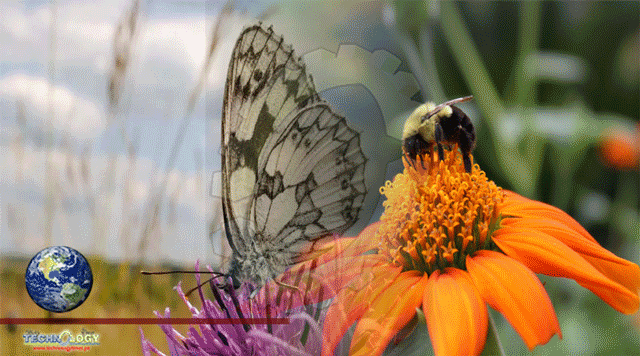A field trial found that levels of nitrogen oxides and ozone similar to those near roads led to a 70 per cent drop in the numbers of pollinators like bees and butterflies on mustard plants

Exposing bees, butterflies and other pollinators to air pollution severely impairs their ability to sniff out the plants they feed on. That could be bad news for both insect populations and the crops that rely on them for pollination.
Pesticides and land use changes are two of the biggest drivers of plummeting insect numbers, but a new field trial suggests that polluted air caused by diesel cars may be a major cause too.
Previous evidence from lab studies has shown how air pollutants degrade the floral odour particles released by plants, making it harder for insects to locate them.
To gain a better handle on how those interactions play out in the wider environment, James Ryalls at the University of Reading, UK, and colleagues ran a three-year field trial. They built a system that generated nitrogen oxides and ozone pollution in the centre of a wheat field and piped it to six octagonal enclosures where black mustard plants were grown. Two more enclosures filled with ambient air acted as a control.
The results were stark. Levels of the pollutants on a par with average concentrations next to major UK roads led to a reduction in the number of pollinators counted on the plants by up to 70 per cent compared with the controls.
Ryalls was surprised by how steep the fall was with relatively moderate levels of pollution. “We weren’t expecting nearly as severe a reduction as we found. It’s kind of crazy,” he says. “If the results from this study extend to the landscape scale, air pollution is likely a pretty important but underlooked factor contributing to pollinator decline. It’s a bit worrying.”
Further field studies and research at a wider landscape level will be needed to fully establish how much dirty air is confusing pollinators hunting for plants’ odours. Some pollinator groups may be more able to compensate with visual cues than others, says Ryalls.
Dave Goulson at the University of Sussex in the UK, who wasn’t involved in the study, says while the trial has relatively low replication of its tests, it “does show potentially major impacts of air pollution on both pollinators and wildflowers”. He adds: “This calls into question the advisability of encouraging planting of wildflowers on the verges of busy roads, at least while internal combustion engines predominate.”
One optimistic way of looking at the research is that if air pollution is more firmly linked to ongoing pollinator declines, cleaning up the air may prove easier than farmers curbing pesticide use. “We have to transition away from fossil fuels anyway, and we are. We should be doing it faster. It’s not as hard as some things to control,” says Ryalls.
Source: News Nation USA
